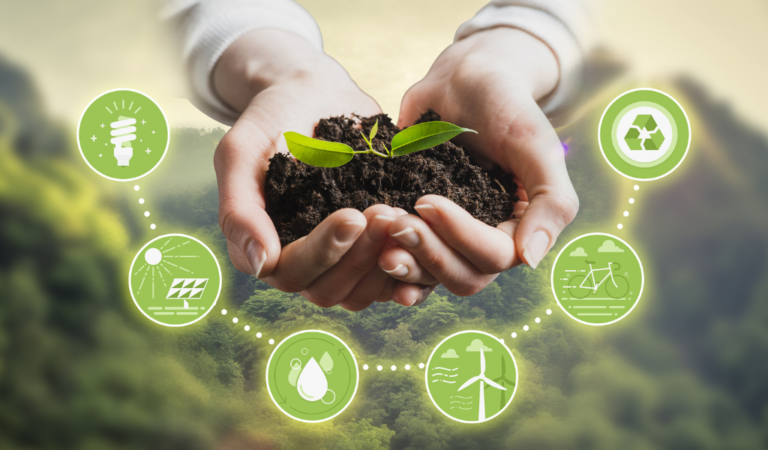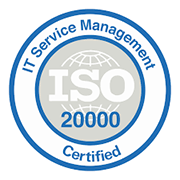i3s Blog

Cybersecurity. Choosing the best management system for your company
At i3s, all our solutions are designed to ensure the necessary measures against increasingly large and complex cyber-attacks in the service and industrial sectors.
LATEST NEWS

Occupational risk management and occupational health software

Data protection issues in a company

Why companies need to incorporate a sustainability strategy

EHS management systems. Companies committed to a better world

Circular economy for companies
The circular economy is a production and consumption model based on the use of products and materials already circulating in the market in order to minimize waste and the use of raw materials, water and energy resources.

Which sectors are most affected by the new plastic tax?
Impact of the new tax on certain companies since January 1, 2023, and in accordance with Law 7/2022, of April 8, on waste and contaminated soils for a circular economy, it applies to single-use plastic and not from recycled plastic.

How to digitize occupational risk prevention
In Industry 4.0, Occupational Health and Risk Prevention management must be addressed as part of the company’s overall management system. The objective is to receive constant, real-time information to update security protocols.

Social sustainability and corporate responsibility
Business strategies aimed at promoting the social dimension of sustainability have an impact on the development of actions that favor cohesion and the development of people through inclusion and equal opportunities.

Adaptation of the SAP system to Ticketbai and Batuz
The deadlines for companies to adapt to the electronic invoicing system of the Basque Tax Authorities are being met. In January 2024, the system will be mandatory in the three Basque territories.

What is the corporate sustainability strategy?
Any company’s sustainability strategy involves implementing measures to ensure respect for the natural environment, i.e. that its activity does not have a negative impact on the planet and its inhabitants.

Excise tax on non-reusable plastic containers
Single-use plastic products and fishing gear account for 70 % of marine litter in Europe. Their impact on the environment and human health is high and of concern. The new plastic tax seeks to correct this situation and promote more sustainable production models.

Get to know SAP S/4HANA. The ERP of innovation.
SAP S/4HANA is an easy-to-use, user-friendly platform that accelerates business management. Its high-speed data processing capacity allows competitive decisions to be made in real time, regardless of the difficulty of the procedures or the size of the business.

Plastic Tax. Transition to a Circular Economy
The Plastic Tax reorients production processes towards models aligned with the Circular Economy. The SAP Responsible Design and Production solution, in addition to managing the different existing regulations, always offers more sustainable design alternatives.

How to manage the Plastics Tax with the SAP solution
The SAP Responsible Design and Productión solution enables companies to adapt to EPR regulations and plastic taxes, integrate circularity principles into business processes and optimize design for sustainable business. Learn about the details of the Plastic Tax.

Modern Talent Management in companies supported by technology
Companies are finding it increasingly difficult to recruit the professional profiles they need. That is why it is so important to retain talent and have the necessary tools to ensure their growth and professional development.

2023, the year of Cybersecurity in SAP environments
If your company uses SAP systems, this must be the year of the definitive leap into cybersecurity. Why? Because online crimes have not stopped growing

Sustainability in the strategic agenda of companies
The future of companies undoubtedly lies in adopting strong measures as soon as possible in terms of sustainability and employee welfare, in a context of

Sustainability and business competitiveness
We are all aware of the impact that our civilization is having on the climate of our planet. our planet and what effects it is

Innovation projects to improve the performance of racing vehicles
Innovation on the track. The constant pursuit of excellence and performance improvement are the driving force behind i3s. As part of our commitment to innovation,

Ensure maximum performance of your SAP platform.
i3s SAP Support and Maintenance Service. Do you want to get the most out of your SAP environment and ensure its proper functioning without having

Learn about the advantages of bringing forward the implementation of Batuz in SAP companies.
The Batuz tax system has been in preparation for several years. The Basque Government has postponed the mandatory implementation date to January 1, 2024. Until

Do you have SAP and need to adapt your company’s invoicing to TicketBAI? Start now
TicketBAI-Batuz will not be part of SAP’s Enterprise Resource Planning (ERP), as priority is given to other management processes. Therefore, your SAP company will need


